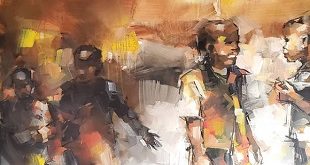
By Flavia Nassaka
New law on organ donation wanted
Unlike other parts of the world, Uganda only allows living donors
Getting a replacement for a damaged organ can save the life of a sick person or improve it considerably. In Uganda, the need for organ replacement is increasing daily.Up to 10,000 patients, especially teenagers, require cornea replacement per year.
On a recent visit to Mulago National Referral Hospital, we found that up to 60 patients there were in urgent need of kidney replacement. They were surviving on expensive dialysis treatment as they looked around for an organ donor. There were others waiting for heart, liver, and lung donations. Unfortunately, getting a donor is a difficult and complex process.
Unlike other parts of the world where one can write a will giving away their organs when they die (cadaveric donors), Uganda only considers living donors.
Then only those aged between 18 and 45 that are allowed to donate organs. This is because at this age, one will have attained the age when they can give independent consent and many inherited diseases will have manifested. Above 45 years, the organs begin degenerating making one unfit to donate. Some organs, like the kidney or liver are unlikely to grow and substitute the removed part. Dr. Simon Peter Eyoku, a senior nephrologist (kidney disease expert) and head of the Mulago Hospital Renal Unit, says to donate an organ takes more than finding a willing donor.

He says while kidneys, part of the liver and lungs can be removed from a live person (living donor), for the heart and cornea to be removed the donor must be brain dead. This means that the part of the brain called the brainstem, which controls breathing, has permanently stopped working. A brain-dead patient is only being kept alive by a life-support machine. In case of a heart donation, the organ is supposed to be removed within six hours. Within this period, the transplanting doctor has to call in an independent physician to confirm the brain death of the donor. Then the relatives of the dead donor also confirm the death and agree to have their patient’s life support stopped and the organs harvested. Unfortunately, says Dr. Ssali Nsibirwa, the president of the College of Ophthalmology of East, Central, and South Africa, there’s no law yet that allows people to sign a directive to donate their parts before they die.
Complex selection
Eyoku says living donors are categorized into two; the living- related and living- unrelated. The most recommended are the living-related. In this group though, a patient’s mother, sister or brothers with whom they share a mother are the most recommended. These are considered first degree donors. When a donor is not got from this category, then second degree donors are considered. They include relatives from the father’s side. However, these must undergo numerous tests, especially genetic matching, to rule out the likelihood of organ rejection. The living-unrelated are the group of last resort. These have no genetic relationship with the patient but their organs are compatible as they are of the same blood group. For this category, Eyoku says, care should be taken to avoid future disagreements over the organ. That is why a husband, wife, or friend to the recipient,are often considered. It is also illegal to sell or buy a body part in Uganda and yet it’s still rare for people to offer their organs to those in need out of kindness.
As a result, patients needing a cornea donation have to pay about Shs15 million to have the tissue imported from USA. Alternatively, the patient can be referred and get the operation done abroad. This is also mainly because Uganda does not have a cornea bank.This is partly because there is no law that allows people to sign a directive to donate their parts before they die.
More hurdles
Dr. Juliet Otiti, another ophthalmologist, says although not having an organ donation law is a problem, the bigger challenge is to make Ugandans break the culture of associating certain practices with witchcraft and wanting to die with all their body parts intact yet they can save thousands of lives. She says infrastructure needs to be put in place whereby willing donors can be able to register and have their organs preserved once they die.
The bigger challenge with non-living donors, Eyoku says, is that although the brain may not be functioning the donor must be alive and on life support. But this makes it hard for family to handover their person even when they are aware there’s no chance of survival. He says success of any transplant program depends on the number of individuals who indicate in advance of their death their willingness to be donors formally by signing documents, though he adds some people just say it but donot sign anywhere. This makes it hard to be legally allowed to take out their organs.
“To identify potential donors, we currently rely on word of mouth provided by the patient because genetic matching is expensive for a country like Uganda,” Eyoku says. He says each country has its own system for matching and distributing cadaveric organs. In Uganda, when an organ becomes available, it is not given to the person who has been waiting the longest, but to the patient best suited to receive it. He says arriving at this decision involves a lot of research. The wait, therefore, could be one day or even several years.
Eyoku says there is need to increase access to information about organ donation because some people may fail to donate because of misguided information about issues like post donation care. In the developed world, people who considerorgan donation have lawyers who guide them through the process.
 The Independent Uganda: You get the Truth we Pay the Price
The Independent Uganda: You get the Truth we Pay the Price




I would love to save lives of the many suffering.
I would love to save atleast a life of a patient